ESSENCE is a Marie Curie Initial Training Network (ITN). As such, its main focus is to train young researchers by giving them the opportunity to improve their research skills, join established research teams and enhance their career prospects. Within ITNs, fellows are divided into Early-Stage and Experienced Researchers. The term Early-Stage Researcher (ESR) refers to researchers in the first four years of their research activity. ESSENCE ESRs will embark in a PhD programme at one of the network partners. Conversely, Experienced Researchers (ERs) are defined as researchers having at least four years of research experience normally already in possession of a doctoral degree. There are currently five ESRs and two ERs in ESSENCE. Five more ESRs and two more ERs are in the process of being recruited in the following months. This section is devoted to introducing current ESSENCE Fellows.
The Early Stage Researchers
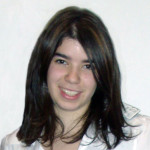 I'm the ESR working on the "Communication Planning" project at the University of Edinburgh. I am from Portugal, where I received my Bachelor's and Master's degrees at the University of Coimbra.
I'm the ESR working on the "Communication Planning" project at the University of Edinburgh. I am from Portugal, where I received my Bachelor's and Master's degrees at the University of Coimbra.
After obtaining my Bachelor's degree in Informatics Engineering (Computer Science), I pursued a Master's in Intelligent Systems, which is basically a specialization in Artificial Intelligence. During my Master's degree I also taught "Introduction to Artificial Intelligence" as a course assistant, and I studied abroad at the University of Lund (Sweden) for one semester as an Erasmus student. My Master's dissertation focused on the development of new algorithms for risk assessment in cardiovascular patients using machine learning techniques, as part of the European MyHeart project. My recent education has focused on the areas of intelligent agents, evolutionary algorithms and machine learning.
Right now, I am interested in understanding how communication and natural language can be used in order to make agents relate with humans in an effective way. I hope that both my background and interests will be beneficial to my PhD research, which will also benefit the ESSENCE project in the long term.
Tânia's research project
Humans are not isolated entities but social beings that can accomplish more working together than by themselves. This is only possible because humans are able to communicate and agree on what to do together.
In the "Communication Planning" project, we are interested in modelling this behaviour for autonomous and independent agents in such a way that they will be able to communicate with a different agent or human without knowing their internal structure.
In a few words, given a complex task environment, we are trying to determine what kind of planning activity an agent should perform to decide what it should say to whom in order to accomplish its goals.
 I've studied mathematical logic at the University of Bonn, before broadening my approach to logic in the Master's in Logic at the University of Amsterdam. Already in Bonn, I investigated at the Naproche project (www.naproche.net) how (mathematical) reasoning is put into natural language.
I've studied mathematical logic at the University of Bonn, before broadening my approach to logic in the Master's in Logic at the University of Amsterdam. Already in Bonn, I investigated at the Naproche project (www.naproche.net) how (mathematical) reasoning is put into natural language.
In mathematics, it is fascinating how effortlessly researchers are able to transfer extremely abstract ideas through mathematical language -- and ordinary language use isn't any less awe-inspiring. Anyone who has ever read a literal transcript of spoken dialogue will see how amazing it is that we can understand each other! I'm interested in this simple sounding question: How do we communicate? My ESSENCE project tackles a central problem here: How do we use language to manage mutual recognition of a shared context. Many fields offer insight into these issues, in particular formal linguistics, logic, psychology and philosophy. I enjoy combining approaches from these fields to further my own understanding of the subject matter.
Julian's research project
In everyday dialogue, people expand their conversational common ground, i.e. the context they regard as mutually shared. This mechanism is mediated by the speech acts of assertion and rejection.
I'm developing a formal account of these speech acts. The account is grounded in considering these acts in dialogue; in particular under the understanding that (i) speech acts are made to an addressee and with particular intentions, (ii) that it is fundamental that assertions can be rejected or retracted, and (iii) that the two acts are, in some sense, dual. As dialogical phenomena, there are also relevant auxiliary conversational mechanisms to consider. I am particularly interested in 'Why'-questions which (can) relate to intentionality.
Moreover, I have found that there are cases where assertion and rejection can only be told apart by looking at the intonation and focal structure of an utterance. At my Edinburgh secondments (With Alex Lascarides), I am developing a pragmatic account of intonation in the SDRT framework. The theory has it that the semantic contribution of an intonational contour is highly underspecified. Depending on the context, the resolution of these underspecifications leads to computable implicatures.
 In the academic year 2008-2009, I started university as a Bachelor's in Linguistics and Literature student at the KU Leuven KULAK. This is a relatively small campus of the University of Leuven at Kortrijk (Belgium) with a specific focus on interdisciplinary research. In my third year, I chose for a specialisation in general linguistics, which included my first courses about computational linguistics. Immediately, I knew that computational linguistics was the domain in which I wanted to specialise. During my Bachelor's, I studied for one semester at the WWU Münster (Germany) and for one semester at the KU Leuven (Belgium) as well.
In the academic year 2008-2009, I started university as a Bachelor's in Linguistics and Literature student at the KU Leuven KULAK. This is a relatively small campus of the University of Leuven at Kortrijk (Belgium) with a specific focus on interdisciplinary research. In my third year, I chose for a specialisation in general linguistics, which included my first courses about computational linguistics. Immediately, I knew that computational linguistics was the domain in which I wanted to specialise. During my Bachelor's, I studied for one semester at the WWU Münster (Germany) and for one semester at the KU Leuven (Belgium) as well.
Being passionate about scientific research, I continued my academic training toward studying a Master's in Linguistics (option Computational and Variational Linguistics) at the Faculty of arts of the KU Leuven. To gain a deeper understanding of the application of AI techniques in linguistic research, and to further develop my programming skills, I then decided to complete an advanced Master's in Artificial Intelligence (option Speech and Language Technology) at the Faculty of Engineering Science of the KU Leuven.
My main research interests include the emergence and evolution of language as well as the formalisation of (certain properties of) human languages.
Paul's research project
Language is one of the most fascinating aspects of human cognition. It is impressive to see the ease with which humans communicate about complex situations in every-day life. Moreover, languages are very fluid systems: new words can be invented at any moment, and the grammatical system of a language is ever-evolving.
In my research, I conduct computational experiments and implement agent-based models to investigate how grammatical languages can emerge from scratch, and how meaning and grammar can co-evolve in populations of language users. I will specifically focus on the emergence and evolution of tense, aspect and modality.
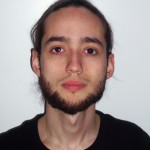 I am a linguist by training and received my Master's at the University of Düsseldorf (Germany). In broad terms, I'm interested in semantic structure, coordination, reasoning, their interaction, and emergence.
I am a linguist by training and received my Master's at the University of Düsseldorf (Germany). In broad terms, I'm interested in semantic structure, coordination, reasoning, their interaction, and emergence.
In the past, my work focused on phenomena subsumed under the heading of "scalarity", i.e. semantic orderings that play an integral role for a large number of expressions, with an emphasis on the semantics and pragmatics of the scalar modifiers "at least" and "at most". In addition to this, my Master's thesis investigated the relationship/dependency between the structure of events and their nominal arguments, e.g. the influence that mass and count nouns have on the interpretation of some types of events, making use of mereology.
On a personal level I enjoy running, classic video games, travelling and exploring cities.
Thomas' research project
My project "The social construction of conceptual space" investigates the interactive and social underpinnings of linguistic conventions. It addresses and analyzes the motivations behind conceptual organizations, their emergence and how these are dealt with and exploited in communication.
To address these questions I focus on ambiguity, as it gives insights on the structure of conceptual space, i.e. its relationships and hierarchies, on how we acquire and (re-)negotiate meanings, as well as on the evolutionary motivations for this and related communicative features.
 I am from Spain and in Madrid I got my Bachelors Honours in Computer Science. Later I moved to Edinburgh where I obtained my MSc in Artificial Intelligence from Heriot Watt University. My thesis focused on diagnosing breast cancer using artificial immune systems and machine learning techniques. After that, I moved to Barcelona where I was involved in the Synergy-COPD project where I was the responsible of the study, design and development of a simulation environment for physiology models to support bioresearchers in their understanding of certain physiology processes that are suffered by patients diagnosed with COPD, chronic obstructive pulmonary disease.
I am from Spain and in Madrid I got my Bachelors Honours in Computer Science. Later I moved to Edinburgh where I obtained my MSc in Artificial Intelligence from Heriot Watt University. My thesis focused on diagnosing breast cancer using artificial immune systems and machine learning techniques. After that, I moved to Barcelona where I was involved in the Synergy-COPD project where I was the responsible of the study, design and development of a simulation environment for physiology models to support bioresearchers in their understanding of certain physiology processes that are suffered by patients diagnosed with COPD, chronic obstructive pulmonary disease.
My research interests now focus on crowdsourcing, how people be- have when performing an online task and how to encourage participation while ensuring high quality of results.
Mercedes research project
There are many reasons that make people collaborate towards the same aim. They can do it voluntarily, for the sake of fun or for money. My project is focused on the use of different reputation techniques to measure the behaviour of the users collaborating in a crowdsourcing platform for a large entity-centric semantic knowledge base. I also observe how those techniques can influence the quality of the results and the performance of the users.
In the crowdsourcing platform there will be three type of users: the translator, who translates from English to his/her mother tongue; the first level validator, who ensures that the translation was properly done; and the second level validator, who checks that the job of the first level validator was correctly done. The reputation of these users can change dynamically upon their performance.
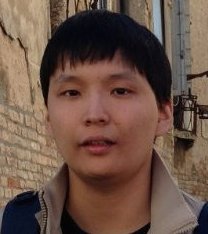 I received my bachelor degree in Computer Science at the University of Mongolia, where I studied algorithms and data structures for many years and had very successful programming contest results at both university and national level. I was an honorary graduate at my university and was awarded with a Master scholarship in Computer Science at Chungbuk National University, South Korea. During my master studies, my main research interests were data and biotext mining, and deep learning. For two years I worked on the development of the project named "Pub- Cluster: Similarity-based Biomedical Document Clustering System". The project organized massive texts in Pubmed documents into meaningful clusters.
I received my bachelor degree in Computer Science at the University of Mongolia, where I studied algorithms and data structures for many years and had very successful programming contest results at both university and national level. I was an honorary graduate at my university and was awarded with a Master scholarship in Computer Science at Chungbuk National University, South Korea. During my master studies, my main research interests were data and biotext mining, and deep learning. For two years I worked on the development of the project named "Pub- Cluster: Similarity-based Biomedical Document Clustering System". The project organized massive texts in Pubmed documents into meaningful clusters.
Khuyagbaatar's research project
The context of my research is crowdsourcing to build knowledge resources that overcome differences in human languages. In particular, crowdsourcing diversity across different languages. Each language inherently reflects culture, habits and customs of its speakers. Language diversity shapes humans’ worldviews. Understanding and bridging language diversity allows us to create the knowledge that is more usable for a diverse range of semantic services and applications. However, a more general benefit is that the knowledge created in this way is usable in diverse user contexts. In this way, it enables mutual understanding and facilitates communication among diverse user communities while preserving its meaning.
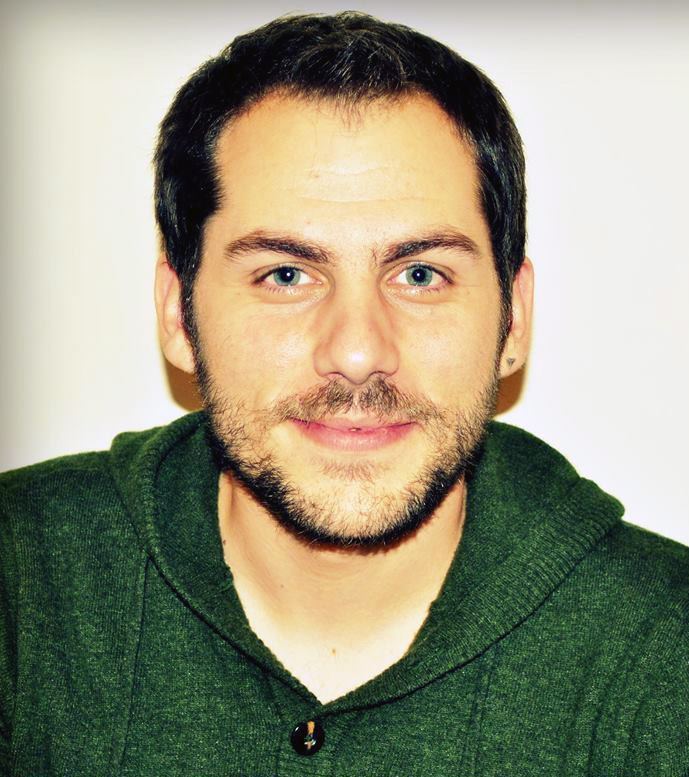 My academic journey began at the Technological Educational Institute of Athens, where I earned my BSc in Informatics. My BSc thesis served as a means to familiarise myself with and develop a passion for Artificial Intelligence (AI).
My academic journey began at the Technological Educational Institute of Athens, where I earned my BSc in Informatics. My BSc thesis served as a means to familiarise myself with and develop a passion for Artificial Intelligence (AI).
After graduation, I worked as Research Assistant at the Environmental & Energy Management research unit at the National Technical University of Athens for 18 months, focusing primarily on two European-funded projects. Although my main tasks required my software engineering skills, I was able to obtain invaluable experience in collaborating with PhD students and researchers, as well as familiarising myself with the nature of scientific research.
My aforementioned desire to focus on AI urged me to enrol on an MSc in Artificial Intelligence at Heriot-Watt University. In my Master’s thesis I analysed how artificial agents can adapt to human cognitive limitations using Reinforcement Learning, combining techniques from cognitive modelling, game theory, machine learning and psychology.
In my free time I enjoy travelling, reading books, playing video games, watching movies and browsing the web for those instantaneous and random questions that pop into our mind from time to time.
Aimilios' research project
Knowledge can be defined as a collection of facts an individual has about a particular subject. In most cases, these facts are formed by one’s experience and can differ from person to person, especially in terms of definition. In that sense, knowledge is dynamic and ambiguous. In order to build knowledge systems that are able to interact with users as well as other knowledge systems in rapidly changing environments, we need to comprehend and formulate the underlying interlinking and evolution of their content.
This project aims at designing, implementing and evaluating human-inspired learning methods for autonomous adaptation, disambiguation and evolution of knowledge over time within knowledge systems.
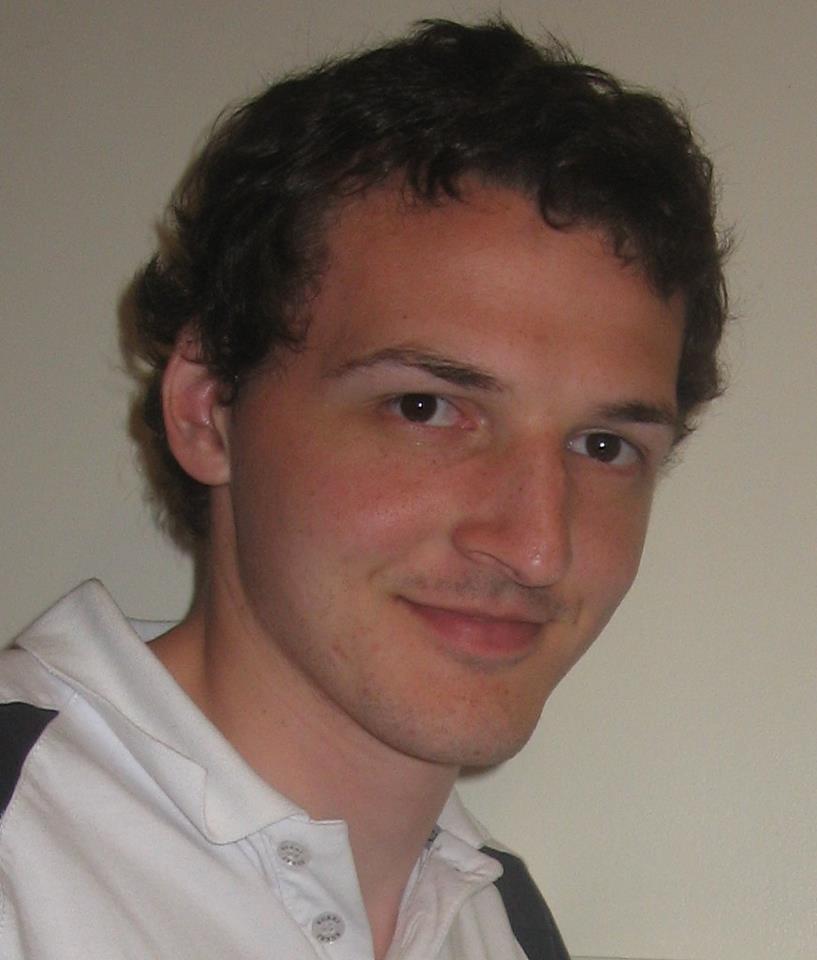 I have started my academic path with a BSc in Computer Science at the University of Turin in Italy. On the last year of my bachelor's degree I spent 9 months at Uppsala University in Sweden, where I wrote my final thesis on Machine Learning methods for Fault Detection. My interests in Machine Learning and Natural Language Processing lead me to Edinburgh University, where I completed an MSc in Artificial Intelligence with a specialisation in Knowledge Representation and Reasoning. Before the beginning of my PhD, I spent 6 months as a Software Engineer at the company Orion Health, in New Zealand. I am currently doing a PhD at Edinburgh University, working at the intersection of Web Technologies, Machine Learning and Natural Language Processing. Before joining the ESSENCE project, my PhD was sponsored by the the Scottish Informatics & Computer Science Alliance (SICSA) prize studentship. During this period I participated in a 6 months internship at the National Informatics Institute (NII) in Tokyo.
I have started my academic path with a BSc in Computer Science at the University of Turin in Italy. On the last year of my bachelor's degree I spent 9 months at Uppsala University in Sweden, where I wrote my final thesis on Machine Learning methods for Fault Detection. My interests in Machine Learning and Natural Language Processing lead me to Edinburgh University, where I completed an MSc in Artificial Intelligence with a specialisation in Knowledge Representation and Reasoning. Before the beginning of my PhD, I spent 6 months as a Software Engineer at the company Orion Health, in New Zealand. I am currently doing a PhD at Edinburgh University, working at the intersection of Web Technologies, Machine Learning and Natural Language Processing. Before joining the ESSENCE project, my PhD was sponsored by the the Scottish Informatics & Computer Science Alliance (SICSA) prize studentship. During this period I participated in a 6 months internship at the National Informatics Institute (NII) in Tokyo.
Paolo's research project
Typical users of computer systems have limited understanding, and consequently limited control, over the functionalities that machines can offer. Similarly, machines operate with little or no understanding of the user’s activities and goals and thus are limited in the support they can offer. My PhD investigates the extent to which semantic data can bridge this gap, functioning as a point of contact between humans and machines to enable richer forms of interactions. Such interactions can be seen as a form of human computation, solving problems that require a mix of human actions and machine computation. The approach that I have taken is to automatically extract knowledge about human activities from instructional websites and to augment the semantic richness of this knowledge using Machine Learning and Natural Language Processing.
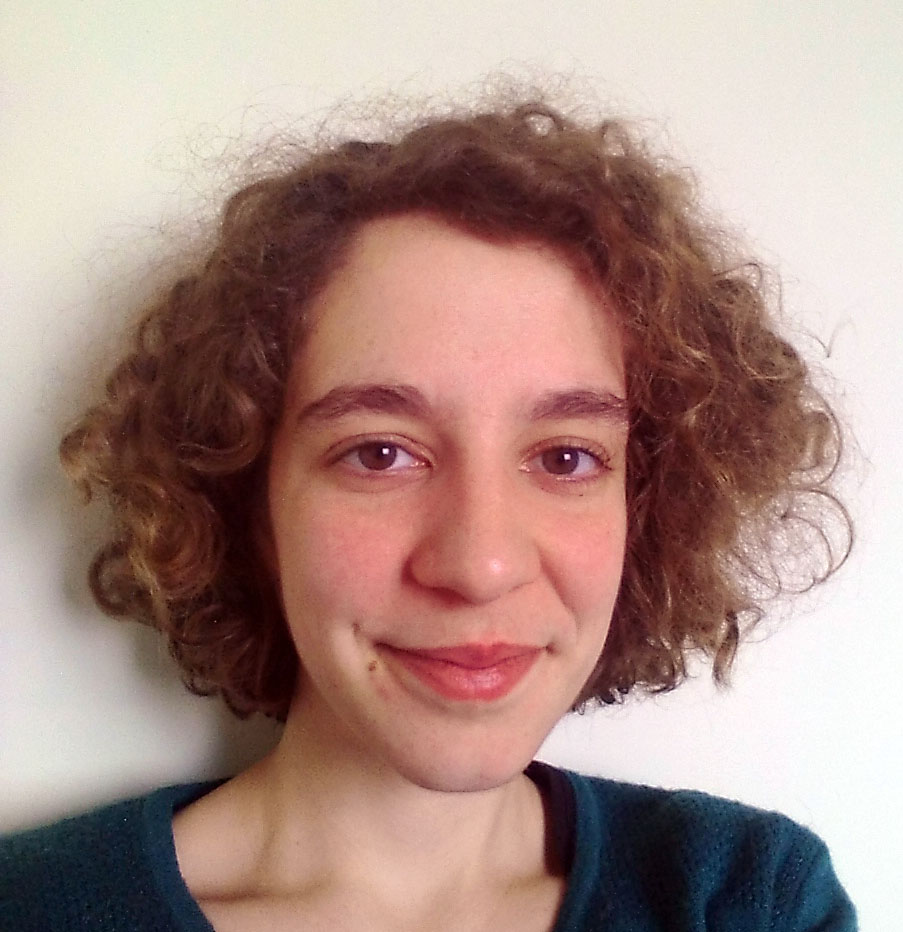 I studied Computer Science at the University of Buenos Aires, graduated in March 2014. I have been interested in Logic since high school, so I focused on this area, taking every available course in the subject. I worked for some time as a developer, and then decided to give research a try, to find it was definitely what I wanted to do.
I studied Computer Science at the University of Buenos Aires, graduated in March 2014. I have been interested in Logic since high school, so I focused on this area, taking every available course in the subject. I worked for some time as a developer, and then decided to give research a try, to find it was definitely what I wanted to do.
During my studies I took part in two internships, both related to computational logic and its applications.
In the first one, in Argentina, I developed a tool to perform consistency checks over legal documents and contracts. The second one took place at INRIA-LORIA in Nancy, France, where I worked with the combination of decision procedures for first order theories, a topic closely related to Satisfiability Modulo Theories (SMT) solving, on which I did my Master. I am now joining the ESSENCE project as an ESR at IIIA, Barcelona. I’m very happy about it as the network tackles very interesting problems for which I hope my background will be useful.
Besides logic and computer science, I enjoy travelling, specially hiking and camping, and also cooking delicious desserts and cakes to have with coffee and a good book.
Paula's research project
My project deals with allowing successful communication among agents that do not share a fixed terminology, even if they use different terms for the same concept, or assign distinct meanings to the same term. This problem is called semantic heterogeneity, and, being crucial in agent communication, there have been many solutions proposed to tackle it, along the years. I will work with the I-SSA technique that, unlike others, takes in account the context in which the interaction takes place. My goals are mainly to extend the I-SSA technique and to relate it to ontology matching techniques.
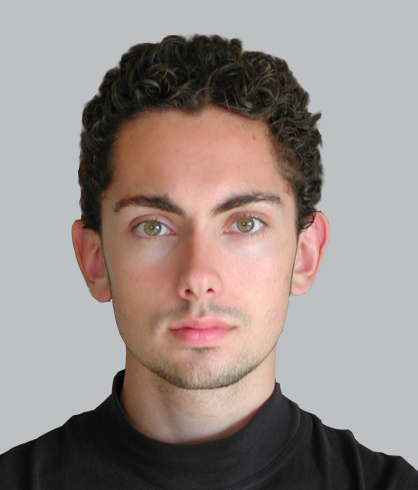 I discovered philosophy of language during high school, and I immediately became fascinated by the work of authors like Austin, Pierce and Searle. Books like “Speech Acts” and “Verbal Behaviour” have greatly influenced my perception of our language. I started to consider communication as a dynamic and emergent phenomenon created by the need of a reliable system in social interactions of all species.
I discovered philosophy of language during high school, and I immediately became fascinated by the work of authors like Austin, Pierce and Searle. Books like “Speech Acts” and “Verbal Behaviour” have greatly influenced my perception of our language. I started to consider communication as a dynamic and emergent phenomenon created by the need of a reliable system in social interactions of all species.
I started to question the mean- ing of “Meaning”, therefore I joined a bachelor degree in Cognitive Sciences at the Lille University. During these three years I discovered new disciplines: biology, philosophy and computer science for example. In particular, I realised that computer science is an amazing way to model dynamic systems and test psychological and linguistic hypothesises.
Due to my growing curiosity in dynamical systems, I joined the Cergy-Pontoise University’s Master degree in Computer Science. I focused my internships on the simulation of the prefrontal brain area, which is closely linked to communication skills (Broca’s area).
I wonder how two humans, with their particular brain organisation and representations, can cooperate using a rich and complete communication system. I joined the ESSENCE project to answer this question using Case Based Reasoning, a method for computer reasoning based on human problem solving.
Kemo's research project
Concept Convergence aims at establishing the theoretical foundations and computational models of argumentation and agreement over meaning. This project takes the notion of meaning as a social contract or agreement, and focuses on the reasoning strategies for evaluating, modifying, and agreeing about the semantic content of concepts by communicative processes such as argumentation.
Its main objectives are (i) achieving a model of the process of interpersonal agreement on the meaning of concepts in social contexts and (ii) developing an argumentation-based interpersonal mechanism for negotiating and agreeing on semantics and meaning in social contexts.
The methodology for concept convergence will be inspired by notions from cognitive linguistic anthropology (like segregates and contrast sets). Concepts are not understood only in a logic-based sense, but also in a semiotic sense (the triad sign/concept/object), upon which individuals can engage in an argumentation process concerning meaning. In particular, the notions of ontology alignment, matching and interoperability will be reinterpreted by those of mutual intelligibility, contextual adaptation, and agreement on meaning.
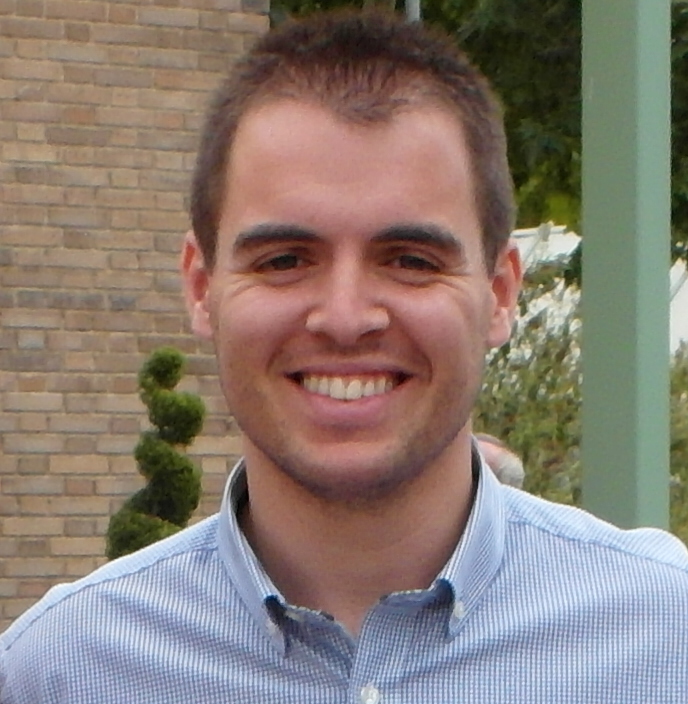 I am the Early Stage Researcher working on the “Dynamic, focussed data matching” project at the University of Edinburgh. I am from Spain where I studied my Bachelor’s and Master’s degree in Computer Science at the University of Jaén.
I am the Early Stage Researcher working on the “Dynamic, focussed data matching” project at the University of Edinburgh. I am from Spain where I studied my Bachelor’s and Master’s degree in Computer Science at the University of Jaén.
Since 2010 I have been involved in several research projects, working in the “Intelligent Systems Based on Fuzzy Decision Analysis (Sinbad2)” research group at the University of Jaén. My research interests were focusing on: Group Decision Making under Uncertainty, Consensus Reaching Processes, Fuzzy Logic, Multi-Agent Systems, Computing with Words, Management of Non-Cooperative Behaviors and Smart Environments. I have some publications related to these topics.
Apart from that I carried out a research stay at the Ulster University (United Kingdom) during 4 months learning about Smart Environment.
Francisco's research project
During an emergency response, the ability to quickly locate and utilise pertinent data can have a significant affect on the efficacy of the response. For example, emergency services relocating people during a flood need accurate information about residents of the affected area. However, it is difficult for organisations to automatically query data developed externally and integrate that data into their own systems, because they will not be mutually compatible, using different terminology, schemas and formats. Currently, the process of utilising external data is usually done manually, either through direct human-to-human contact, with no automated use of the data, or through manual integration of the data, a process that is extremely time-consuming and requires a high level of expertise from the user.
The focus of this project is on increasing the level of automation in this process. There are several steps to this process: for example, selecting appropriate data sources; aligning the schema of the data source with that of the central repository; disambiguating attributes; visualisation of data.
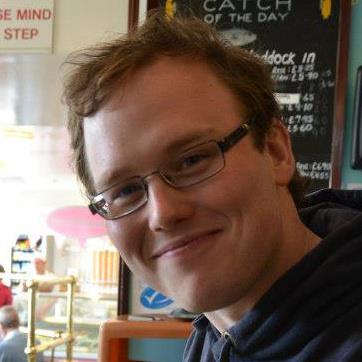 I received my Bachelor's degree in Computer Engineering at the University of Essex. Following this I received a Master's degree in Cognitive Science at the University of Edinburgh with my dissertation entitled "Semantic Alignment Between Agents with Heterogeneous Sensors". This led into my PhD at the University of Edinburgh on the same topic as my Master's dissertation and fellowship in the ESSENCE network at Vrije Universiteit Brussel.
I received my Bachelor's degree in Computer Engineering at the University of Essex. Following this I received a Master's degree in Cognitive Science at the University of Edinburgh with my dissertation entitled "Semantic Alignment Between Agents with Heterogeneous Sensors". This led into my PhD at the University of Edinburgh on the same topic as my Master's dissertation and fellowship in the ESSENCE network at Vrije Universiteit Brussel.
Michael's research project
Existing research on language games à la the ‘Talking Heads’ experiment has focused on utilising language games as a means to explore the emergence of language in evolutionary linguistics. Language games are in a sense a 'theory' about the emergence of language and the focus is on demonstrating the emergence of particular linguistic phenomena. My research focuses on taking this cognitively inspired approach and reformulating it as a cognitively inspired solution to the problem of aligning distributed, incremental, and targeted alignment between languages. Moreover, where language games are used in some task context to improve task performance. This requires marrying concepts from evolutionary linguistics with ontology matching and reinforcement learning and as such, is of interest to various research areas.
The Experienced Researchers
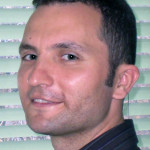 I received my MSc (Magister of Science) and PhD in Computer Science from the School of Electrical Engineering, University of Belgrade in 2009 and 2013, respectively. My primary research goals are directed towards interdisciplinary research bridging human-computer interaction and software engineering fields. I am particularly interested in bringing various user aspects into software design to make the resulting system more human oriented and appropriately embedded in user experience. My background spans interaction design, interactive visualization, and user interface technologies. My main research interests include design of interactive systems, user interface software technologies, human-centered computing, crowdsourcing and the Semantic Web.
I received my MSc (Magister of Science) and PhD in Computer Science from the School of Electrical Engineering, University of Belgrade in 2009 and 2013, respectively. My primary research goals are directed towards interdisciplinary research bridging human-computer interaction and software engineering fields. I am particularly interested in bringing various user aspects into software design to make the resulting system more human oriented and appropriately embedded in user experience. My background spans interaction design, interactive visualization, and user interface technologies. My main research interests include design of interactive systems, user interface software technologies, human-centered computing, crowdsourcing and the Semantic Web.
Most of my research comes from an engineering perspective: creating prototypes and interactive demonstrations. I have developed numerous practical software solutions and tools, with different technologies, and actively participated in projects in academia and industry. My research in the context of the ESSENCE is aimed at bridging interaction design and knowledge engineering to build crowdsourcing platforms that enable efficient and effective collaboration among diverse user communities in the process of "semantification" of large data sets.
Mlađan's research project
The ESSENCE Challenge is a concrete problem that captures semantics as a phenomenon that can be represented, used and communicated successfully between humans and machines. It is designed as a guessing game. The task of the participants in a future ESSENCE Challenge competition is to develop an intelligent agent able to successfully play the game autonomously and without human intervention. Specificially, the objective of the Challenge is to produce an agent capable of guessing a destination (the guesser) from increasingly informative hints provided by a human user (the describer). Hints are predefined and prepared in advance. The long-term goal is to build an intelligent computer program that plays the game completely autonomously and that is even able to beat human players.
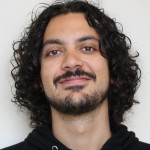 I obtained both the Bachelor's and Master's degrees in Engineering in Computer Science from the University of Parma, Italy. Through a diverse career path, my projects have included the implementation of a digital signal processor kernel driver for embedded Linux IP-cameras and the viable space estimation for autonomous vehicle navigation through Computer Vision and Artificial Intelligence techniques.
I obtained both the Bachelor's and Master's degrees in Engineering in Computer Science from the University of Parma, Italy. Through a diverse career path, my projects have included the implementation of a digital signal processor kernel driver for embedded Linux IP-cameras and the viable space estimation for autonomous vehicle navigation through Computer Vision and Artificial Intelligence techniques.
While in Italy, I also gathered six years' experience in the IT industry as a Linux systems administrator, web application developer, and embedded systems architect. In 2011, I completed a Master's in Soft Computing and Intelligent Data Analysis at the European Centre for Soft Computing, Asturias, Spain. There, I also obtained my PhD within the MIBISOC Marie Curie ITN, in 2013. In my thesis, I integrated computer vision, optimization, and machine learning techniques for solving medical image segmentation problems.
My research interests focus on translating human abilities to computational systems. While I previously focused on computer vision, now I am considering communication and semantics. In particular, I'm interested in designing systems in which the actors didn't agree in advance on the meaning of concepts.
In my spare time I'm an avid reader (mostly science) and an enthusiast about cars and engineering. I like to travel and taste foods from different cultures.
Nicola's research project
The ESSENCE network is composed of several nodes across Europe. While ESSENCE Fellows are developing intriguing individual research lines, we believe that ESSENCE's ambitious vision, artificial systems able to communicate by evolving the meaning of shared concepts, like natural systems do, can only be achieved through a careful fusion of the network's research outcomes.
To unleash the potential of this integration, I will design a coherent overall architecture for a software framework able to deal with tasks and objectives of ESSENCE's application scenarios, in a top-down perspective, while also considering results and requirements of the individual subprojects, in a bottom-up fashion.
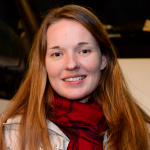 I hold a master’s degree in linguistics and literature from the Karl-Franzens-University in Graz, Austria, and a bachelor’s degree in business informatics from the University of Vienna, Austria. After working in industry for some years for companies such as Siemens or Berlitz, I decided to return to academia. I completed my PhD at the University of Vienna in 2015 prior to joining the Artificial Intelligence Research Institute (IIIA-CSIC) in Barcelona.
I hold a master’s degree in linguistics and literature from the Karl-Franzens-University in Graz, Austria, and a bachelor’s degree in business informatics from the University of Vienna, Austria. After working in industry for some years for companies such as Siemens or Berlitz, I decided to return to academia. I completed my PhD at the University of Vienna in 2015 prior to joining the Artificial Intelligence Research Institute (IIIA-CSIC) in Barcelona.
Coming from an interdisciplinary background, I have been mainly interested in the integration of computational and natural language models with an emphasis on multilingual knowledge representation. My thesis focused on the integration of terminological approaches with ontologies. Their integration allows for the modeling of convergences and divergences across different natural languages by grounding them in shared ontology entities. My contributions to projects in academia have been of a theoretical nature as well as practical by developing software solutions.
Dagmar's research project
Within the ESSENCE network, individual contributors take a wide range of representational and algorithmic approaches to shape shared meaning. Each functional component aims at translating human communication capabilities to computational systems. By integrating these heterogeneous components into a comprehensive environment, we seek to achieve a deeper understanding of how artificial systems can evolve communication.
Building on the ESSENCE Challenge and the architecture of the ESSENCE Platform, I will incrementally integrate the network’s individual components into a comprehensive platform. This also entails its evaluation with real-world empirical data to support the platform’s reuse and community uptake and includes a thorough documentation.
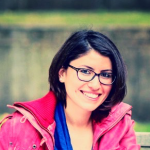 I received my B.Sc. degree in Computer Engineering from Bogazici University, Istanbul. After a 13-month experience in consultancy, I pursued my MBA degree from University of Wales, UK and my PhD degree in Computer Science from University of Essex, UK. My research interests include sentiment analysis, opinion mining, distributional semantics, Computing With Words (CWWs), type-2 fuzzy logic theory and applications, uncertainty modeling, and knowledge representation and reasoning. I am an Associate Fellow of the Higher Education Academy, UK and an active member of the IEEE Computational Intelligence Society (CIS) Conference Communications Subcommittee.
I received my B.Sc. degree in Computer Engineering from Bogazici University, Istanbul. After a 13-month experience in consultancy, I pursued my MBA degree from University of Wales, UK and my PhD degree in Computer Science from University of Essex, UK. My research interests include sentiment analysis, opinion mining, distributional semantics, Computing With Words (CWWs), type-2 fuzzy logic theory and applications, uncertainty modeling, and knowledge representation and reasoning. I am an Associate Fellow of the Higher Education Academy, UK and an active member of the IEEE Computational Intelligence Society (CIS) Conference Communications Subcommittee.
During my doctoral study, I worked on improving the communication between the humans and the machines using the paradigm of Computing With Words (CWWs), which aims to mimic human reasoning and makes use of words from natural language (rather than numbers). I developed a prototype that enables a complete CWWs framework that learns the word meanings from the user, represents them using fuzzy sets and adapts the meanings over time to the changing experiences of the user (for user perception modeling and for a better personalised human-computer interaction).
Aysenur's research project
The ESSENCE Network comprises diverse approaches and hence resources from individual projects. My objective is to develop ESSENCE Model, which will bring together these resources in a coherent way while facilitating dissemination and accessibility. Furthermore, I am investigating with modern computational linguistics as well as natural language processing techniques whether, and if so, how, public opinions on artificial intelligence have changed throughout its history.
















